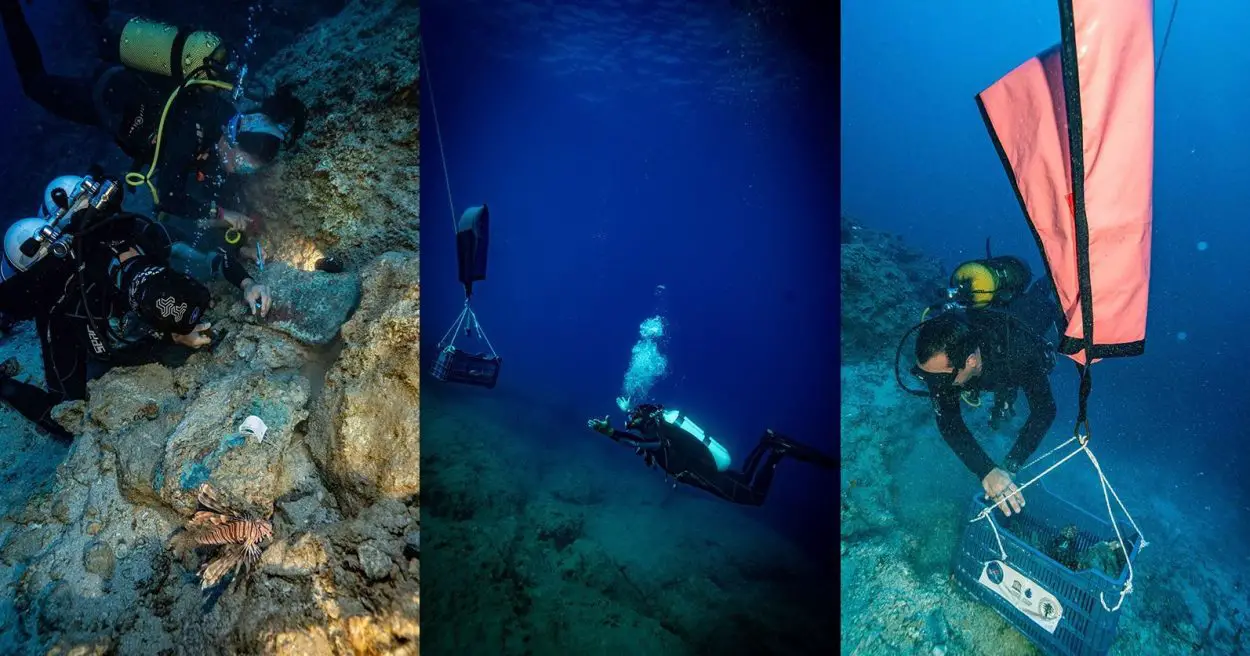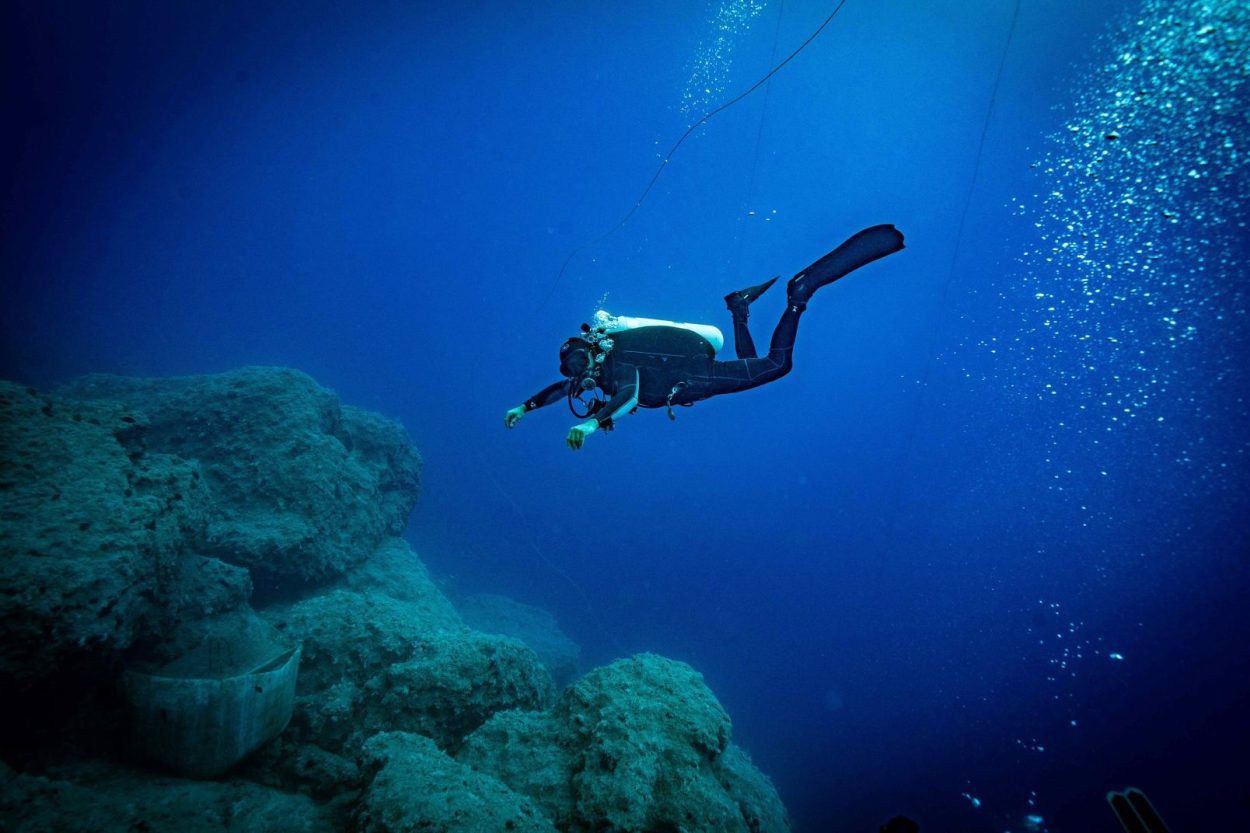A shipwreck is generally defined as a sunken or damaged ship, however, sometimes the term can also be applied to the sunken remains of a ship’s cargo.
This is the case of a shipwreck found off the coast of Turkey, for which underwater surveys conducted by the Nicolaus Copernicus University in Toruń have yet to locate any structural remains, fragments of wood, or even the anchors.
All that survives are coppers bars on the seabed, that were being transported on a ship leaving the Bay of Antalya into the open sea during the Bronze Age.
According to the researchers, the vessel was likely pushed against rocks and sank quickly. Due to the heavy cargo and intake of water, the vessel slid down a submerged slope that caused the cargo of copper bars to be emptied along the slide path at different positions on the slope.
Some of the bars are found at a depth of 35 metres, while others are located at 50 metres. However, the dive team suggest that more of the ship’s cargo is likely found at far greater depths.

30 bars have been discovered to date (which were being transported for the production of bronze), along with fragments of bronze vessels.
The lack of physical evidence of the actual vessel is explained in a press announcement: “In the Mediterranean, any wooden part of a ship that is not covered by bottom sediments or cargo is eaten by the ship borer (Teredo navalis). It can be compared to a large bark beetle that eats wood very quickly. It occurs in waters that are salty and warm enough for it.”
Furthermore, the vessel is likely the oldest known example found transporting copper bars, which preliminary dating suggests to around 1500 BC.
Header Image Credit : Nicolaus Copernicus University in Toruń – Mateusz Popek





